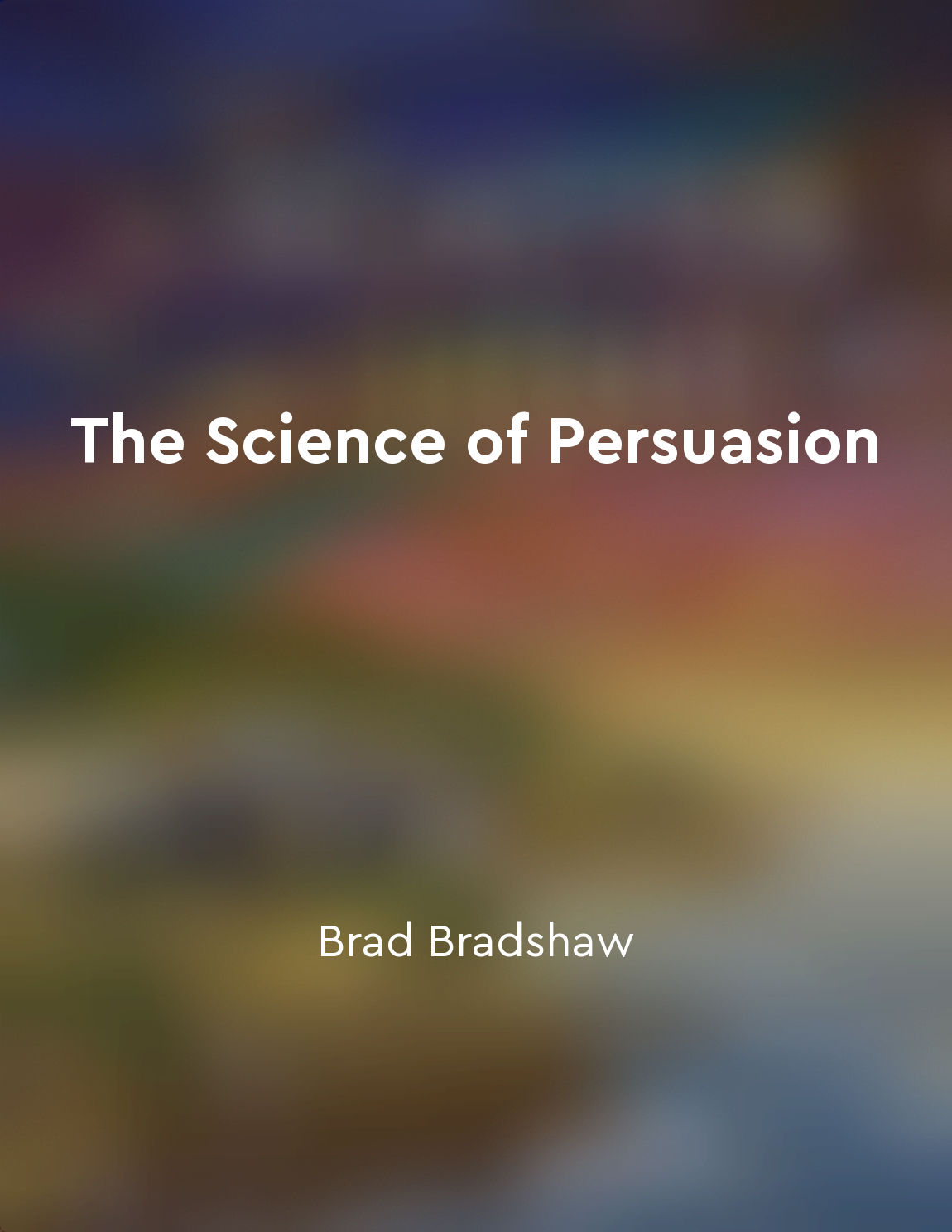Audio available in app
Creating a sense of belonging can enhance persuasion from "summary" of The Science of Persuasion by Brad Bradshaw
Belonging is a powerful human need that can greatly influence the way we think and behave. When we feel a sense of belonging, we are more likely to be open to new ideas and information that align with the group we identify with. This is because belonging gives us a sense of security and validation, making us more receptive to messages that come from within our group. In the context of persuasion, creating a sense of belonging can be a highly effective strategy. By establishing a connection with our audience and making them feel like they are part of a larger community or group, we can increase the likelihood that they will be persuaded by our message. This is because people are more likely to be influenced by those they feel a connection with, as opposed to those they perceive as outsiders. One way to create a sense of belonging is through shared values and beliefs. When we can demonstrate that we share common values with our audience, we are more likely to gain their trust and credibility. This can make them more receptive to our message and more willing to be persuaded by our arguments. Another way to foster a sense of belonging is through the use of inclusive language and imagery. By using language that speaks directly to our audience and makes them feel like they are part of the conversation, we can create a stronger connection and increase the likelihood that they will be persuaded by our message.- Creating a sense of belonging can enhance persuasion by tapping into the fundamental human need for connection and validation. By establishing a connection with our audience, we can increase their receptivity to our message and make them more likely to be persuaded by our arguments. This highlights the importance of building relationships and creating a sense of community in the process of persuasion.


